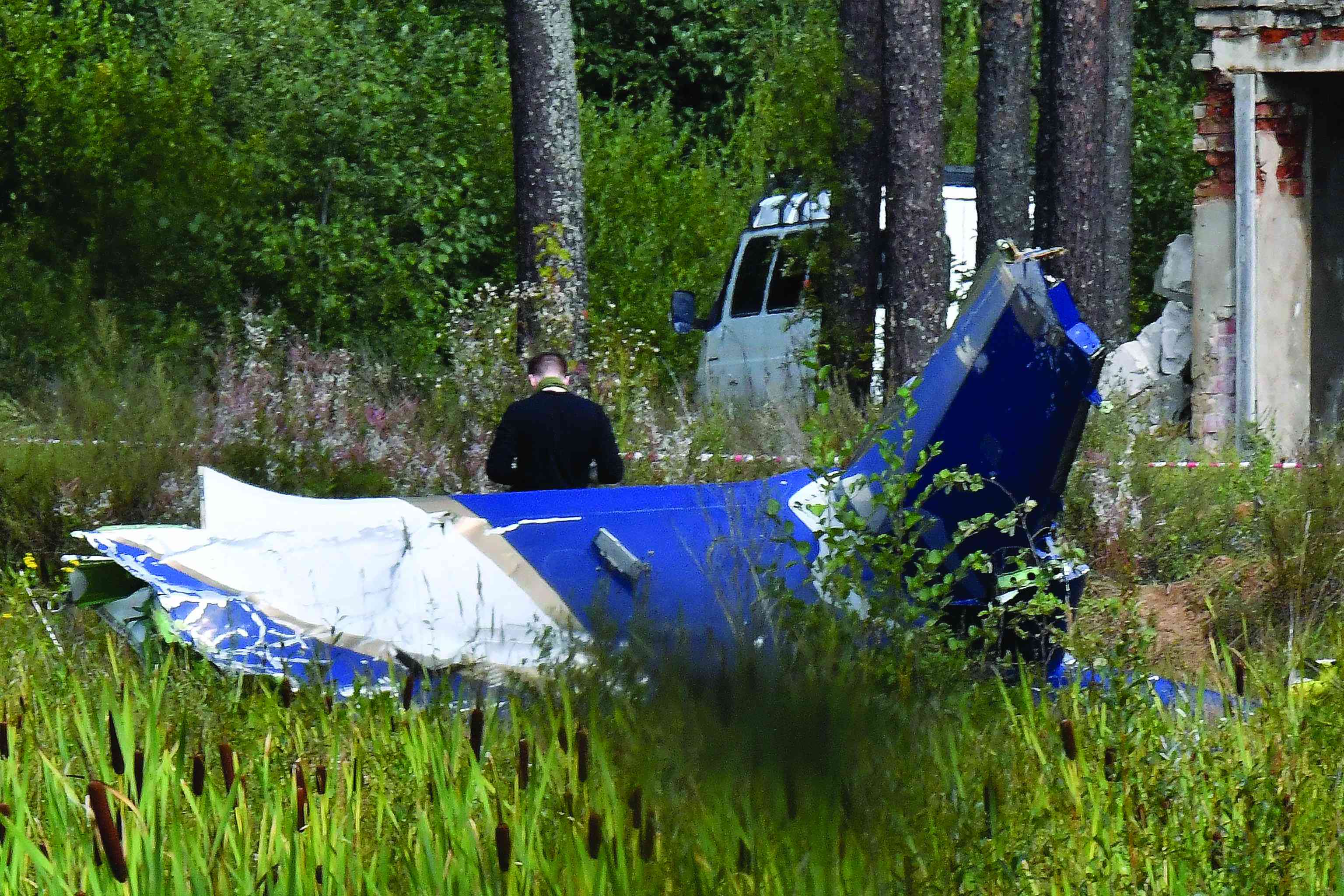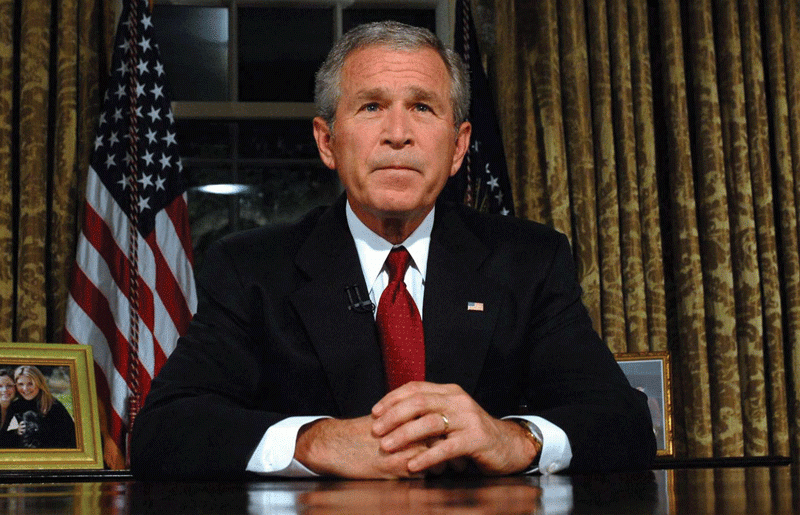
ONE of the world's most notorious mercenary, a Russian oligarch, Yevgeny Prigozhin, died in a plane crash on August 23.
Prigozhin was the “director” of the Wagner Group, which has been headlining major news outlets, particularly in the last year. It operates as a private military company (PMC) and is referred to as PMC Wagner or just Wagner.
Wagner has been heavily cited in the recent intercourses in Ukraine and has further extended operations in various politically unstable nations, such as Libya, Syria, Mali, Sudan, and the Central African Republic (CAR).
Virtually everywhere that Wagner has operated human rights organisations, and the United Nations have uncovered evidence of mass rapes, murders and tortures.
The group was founded in 2014 by Dmitry Utkin , a former GRU (Soviet Military Intelligence Organisation) and Spetsnaz officer, and private mercenary of the short-lived Slovanic Corps.
According to the group’s founding documents in May of 2014, Utkin was reportedly appointed military “commander” of the group, responsible for training, recruiting and the disciplining of group members, while Prigozhin was named “director” and tasked with securing group funding, weapons, and shield personnel.
Wagner is supposedly an organisation independent of the Russian state, offering military services to substrate actors and the Russian government. On paper, Wagner, Russian network providing fighters for hire, does not exist.
According to Al Jazeera, it does not file tax returns, its alleged backers deny any connection to it and officially, military private companies are illegal in Russia
- Russian oligarchs search for refuge in Africa
- Before the great Ukrainian offensive
- Russia: The aftermath of folly
- World View: Sahel coups: It’s the ‘Great Game’ again
Keep Reading
“Mercenaries have no official status, so they don’t have the same rights or guarantees as an official representative of the armed forces, and payment is only after completing a mission,” Marat Gabidullin was quoted by Al Jazeera in August last year.
“You finish the mission get paid and you go on vacation.”
Gabidullin is a former mercenary of the Wagner Group.
Through the use of this kind of machinery, according to press reports, the Russian government is allegedly given a carte blanche vis-a-vis PMCs, giving them an arms’ length of association, and a convenient ruse to escape international condemnation or diplomatic crises.
But Russia’s proclamations of distance has always been unconvincing as the mercenaries' activities predate nearly a decade to the Russian proxy war in Ukraine’s Donbas region in 2014.
Prigozhin’s group is indisputably the most prominent Russian PMC.
“It’s always been part of either military intelligence or the special operation forces. It’s never been private or somehow autonomous,” Russian military expert Pavel Luzin was also quoted by Al Jazeera.
By relying on PMCs, the Kremlin can keep costs low and maintain a degree of deniability.
So how does the Wagner group rise from the ashes of supposed isolation to become one of the most imperious private companies engaged in conflict regions and ensuring that it is entirely independent without access to munitions?
The legal ambiguity surrounding their status in the Russian Federation allows them to operate with impunity, which expansively advantages Russia, while Vladimir Putin denies any involvement or connection.
The Kremlin has ceaselessly sought to portray its undeclared war “as indigenous separatist insurgency,” and PMCs accredit enables this Russian recount of non-involvement.
Wagner is much more than a PMC used to save costs and reasons for plausible deniability. With reconstituted units from the GRU, VDV, and FSB, Wagner is a strategic quasi-state agency, making them a cardinal network aiding in shaping Putin’s domestic and foreign policies.
The group has made considerable developments, much more extensive than that of a private security company.
The Wagner group veils a much larger, more perennial system between the state and private networks.
As the proxy war in Donbas settled into intractable dispute, Wagner engagements heightened in the Middle East and Africa. Wagner made substantial inroads into many African countries.
Aside from conducting military operations alongside the national armies of those countries, such as Syria, Mozambique, CAR, Mali, Libya, and Sudan, Prigozhin was involved in autocratic promotion of these African states.
His group provided military services for autocrats, backing authoritarian anti-government forces resisting democratisation efforts, and provided political candidates manipulation techniques to undermine democratic processes.
Prigozhin stood to gain and was involved in various contracts of minerals and valuable resources for the Kremlin and himself. Virtually everywhere Wagner operated, Prigozhin received substantial outlays.
In CAR, Lobaye Invest, a shell company owned by Prigozhin, welcomed “gold and diamond concessions in exchange for the military support for the government of Pres Faustin-Archange Touadera”.
In Mali, the ruling Junta had increased its reliance on Wagner to operate in place and with their traditional military functions, whilst expanding the control of the country’s mineral services over to Prigozhin.
Wagner and Russian strategic aims have been formed by the economic interests of PMCs. PMCs reconstitute the Kremlin's national security interests, authoritarianism, and anti-Westernism, in areas of the world where political instability adversely impacts energy, and armed exports.
Prior to Prigozhin’s death and the decapitation of the group’s leaders, the attempted mutiny on June 24, waged by him and other members of the Wagner group severely wounded Putin and threatened the authority and brute force of Russia.
Putin’s presidency is most commonly regarded as a militarily strong and formidable state. Prigozhin and his impudence accused Russian defence officials, more specifically Defence minister Sergei Shoigu of withholding armed supplies from his mercenaries.
Prigozhin was excoriated as a traitor, Putin and his security services made no attempt to apprehend him, this mild trepidation, imperiled the Kremlin’s vantage and hegemony in the West.
The effects of his mutiny also threatened to erode Russia’s position and bases in Africa, as the withdrawal of Wagner members could result in non-state groups defying the authority of governing in those countries which Wagner was based.
Wagner may have worked on behalf of rational state interests; however, it also inculpated the Kremlin in risks that the Russian state would aim to avoid.
The Wagner group is a pivotal actor in Russian operations, and more specifically because of the reports available of their involvement in several African and Middle Eastern states.
Much of the group's work in Africa relied on the amoral and iniquitous connections Prigozhin had with African leaders.
Prigozhin’s death will not likely influence the war or Russian advances into Ukraine because Wagner had already left Ukraine; his death also eradicates the threat of undermining Russian global influence and symbolises Putin’s authority, impeding any further attempts of insubordination.
It appears from the Brics Summit, aside from Russia attempting to promote their stake in Ukraine, the Russian agenda remains resolute in boosting their trade relations and investment within African countries.
The Kremlin also has been more direct in developing the relationships between military leaders of those countries that Prigozhin and Wagner was based.
The remains of the Wagner group, without its head, will most likely continue to pursue its strategies, and efforts in furthering Russian and Belarusian interests in countries where the relationships and contracts already exist.
The countries, in which Wagner was trying to expand their presence in places such as Niger and Burkina Faso, will arguably be stalled.
Russia’s Wagner group has gained notability with its deplorable activities in Ukraine, however, their ongoing schemes in Africa are less proclaimed.
They are much more than a PMC and more of a proxy organisation commissioned by the Russian state, as opposed to a private company open to the market and Prigozhin was much more than a leader of a PMC, but rather a legitimised criminal.
Russia may face challenges replacing the seditious figure in Africa but African countries face larger challenges disassembling the contracts and destruction caused by the group.
- Ranchod is a politics, philosophy and economics student in her final year at the University of Exeter in the United Kingdom. — [email protected]











